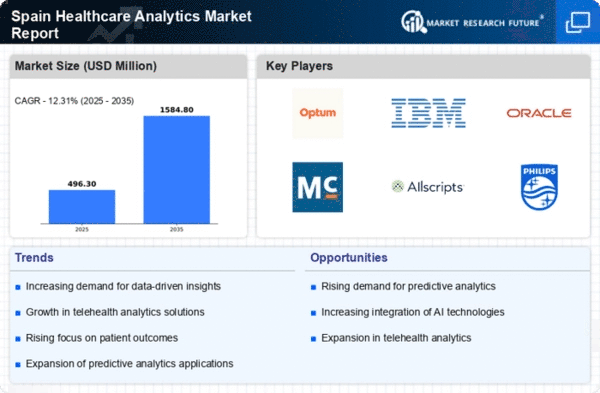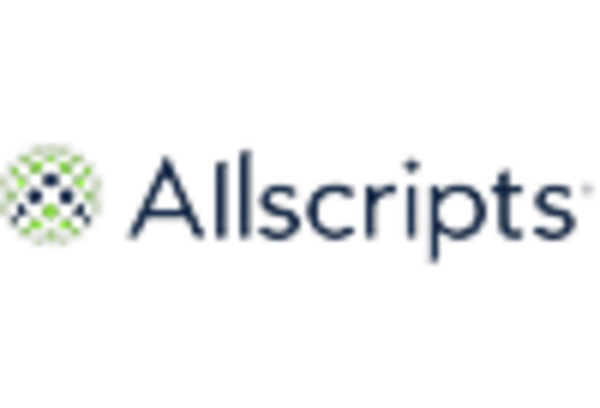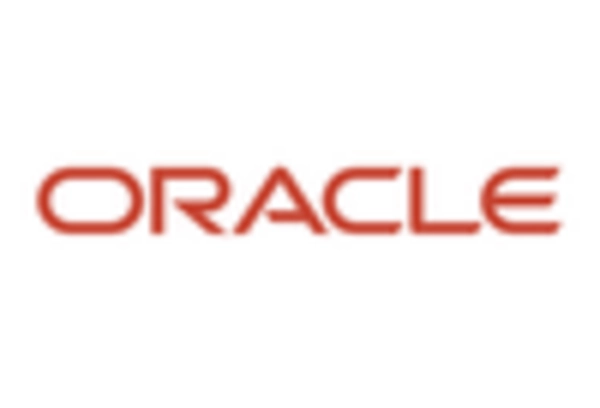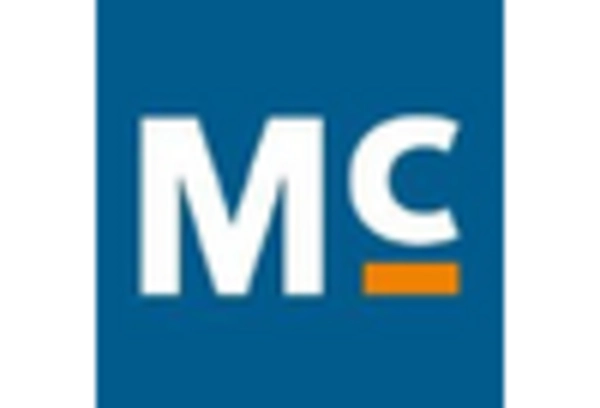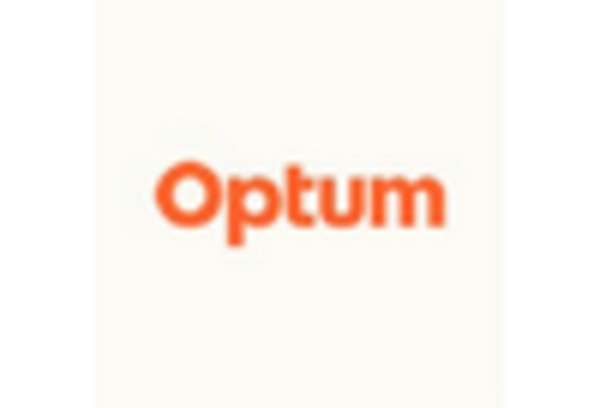Government Initiatives and Funding
Government initiatives and funding play a pivotal role in shaping the healthcare analytics market in Spain. The Spanish government has recognized the importance of digital transformation in healthcare, allocating substantial resources to promote the adoption of analytics technologies. Recent reports indicate that public funding for healthcare IT projects has increased by 30% over the past year, aimed at enhancing data interoperability and analytics capabilities. These initiatives not only facilitate the implementation of advanced analytics solutions but also encourage collaboration between public and private sectors. As a result, healthcare organizations are more likely to invest in analytics tools, driving growth in the market. The support from governmental bodies is thus a significant factor influencing the expansion of the healthcare analytics market, as it fosters an environment conducive to innovation and technological advancement.
Growing Emphasis on Patient-Centric Care
The healthcare analytics market is witnessing a growing emphasis on patient-centric care, which is reshaping how healthcare providers approach analytics. In Spain, there is a marked shift towards understanding patient needs and preferences through data analysis. This trend is reflected in the increasing investment in analytics solutions that focus on patient engagement and satisfaction. Reports suggest that healthcare organizations that prioritize patient-centric analytics experience a 20% improvement in patient retention rates. By utilizing analytics to tailor treatments and enhance communication, providers can foster stronger relationships with patients. This focus on personalized care not only improves health outcomes but also drives the demand for sophisticated analytics tools, thereby propelling the growth of the healthcare analytics market.
Advancements in Technology and Infrastructure
Advancements in technology and infrastructure are significantly influencing the healthcare analytics market in Spain. The rapid evolution of cloud computing, big data, and machine learning technologies has enabled healthcare organizations to process and analyze large datasets more efficiently. Recent data indicates that the adoption of cloud-based analytics solutions has increased by 40% among healthcare providers in Spain. This technological progress allows for real-time data analysis, which is crucial for timely decision-making in clinical settings. Furthermore, improved IT infrastructure facilitates better data integration and sharing among healthcare entities. As organizations continue to embrace these technological advancements, the healthcare analytics market is likely to expand, driven by the need for innovative solutions that enhance operational efficiency and patient care.
Rising Demand for Data-Driven Decision Making
The market in Spain is experiencing a notable surge in demand for data-driven decision making. Healthcare providers are increasingly recognizing the value of leveraging data analytics to enhance patient outcomes and operational efficiency. This trend is underscored by a reported growth rate of approximately 25% in the adoption of analytics solutions among healthcare organizations. As hospitals and clinics strive to optimize resource allocation and improve care delivery, the integration of advanced analytics tools becomes essential. The ability to analyze vast amounts of patient data allows for more informed clinical decisions, ultimately leading to better health outcomes. Consequently, this rising demand is a key driver propelling the healthcare analytics market forward, as stakeholders seek to harness the power of data to navigate the complexities of modern healthcare.
Increased Focus on Cost Reduction and Efficiency
The healthcare analytics market in Spain is being driven by an increased focus on cost reduction and operational efficiency. Healthcare providers are under constant pressure to manage costs while maintaining high-quality care. Analytics solutions offer valuable insights that can help organizations identify inefficiencies and optimize resource utilization. Reports indicate that healthcare organizations utilizing analytics have achieved cost savings of up to 15% through improved operational processes. By analyzing data related to patient flow, resource allocation, and treatment outcomes, providers can make informed decisions that lead to enhanced efficiency. This focus on cost-effectiveness is a critical driver for the healthcare analytics market, as organizations seek to leverage analytics to navigate financial challenges while delivering quality care.


